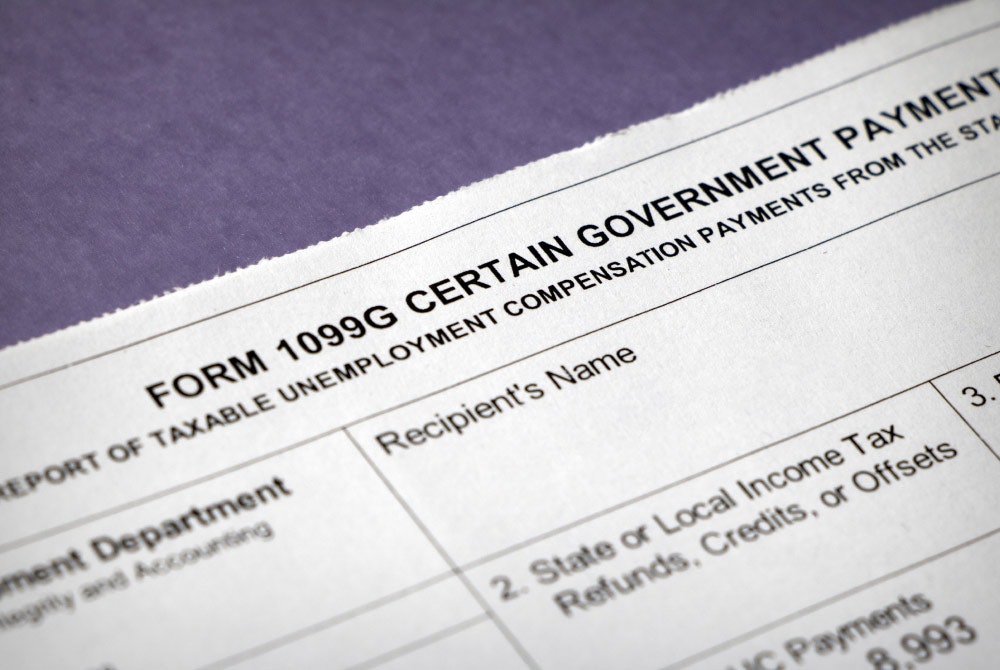- Tax Withholding When Collecting Unemployment
- How Unemployment Affects Your Eligibility for Tax Credits
- Information to Include in Your Tax Return
- Will Collecting Unemployment Mean I Owe Tax?
Collecting unemployment benefits can affect your tax return, but it all depends on which state you live in. Since taxes aren’t usually taken out of your unemployment payments, you may receive a tax bill when you do your return if you live in a state that has income taxes.
Tax Withholding When Collecting Unemployment
Unemployment benefits are usually taxed. However, the tax generally isn’t taken out of your regular payments unless you’ve requested to have taxes withheld. This means that when you do your tax return, you may owe tax to the government, or your tax refund will be less than you expect.
Unemployment benefits are taxed federally, but not all states tax unemployment benefits.
States that tax unemployment benefits:
- Arizona
- Arkansas
- Colorado
- Connecticut
- Delaware
- Georgia
- Hawaii
- Idaho
- Illinois
- Indiana
- Iowa
- Kansas
- Kentucky
- Louisiana
- Maine
- Maryland
- Massachusetts
- Michigan
- Minnesota
- Mississippi
- Missouri
- Nebraska
- New Mexico
- New York
- North Carolina
- North Dakota
- Ohio
- Oklahoma
- Oregon
- Rhode Island
- South Carolina
- Utah
- Vermont
- West Virginia
- Wisconsin
There are no state unemployment taxes for those that aren’t listed above, so receiving these payments should not affect your tax return the same way.
Some states have made 2021 payments (up to $10,200 of unemployment benefits) exempt from tax for eligible people, some states have other exemptions depending on your situation, and some states have the same rules for federal taxes on unemployment.
How to Voluntarily Withhold Taxes from Unemployment Payments
If you want to have your unemployment benefits taxed, so you don’t receive a tax bill when you file your tax return, you can submit Form W-4V Voluntary Withholding Request to the entity paying the benefits (do not send the form to the Internal Revenue Service).
You can choose to have the following tax amounts withheld from your payments:
- 7%
- 10%
- 12%
- 22%
Submitting this form will mean you will no longer receive the full amount of unemployment payments you were receiving previously, as taxes will be taken out first. However, it will mean that you won’t be met with as big of a bill (or your refund will be higher) when you file your tax return.
Taxes will be taken out of your benefits until you amend the withholding by submitting a new W-4V form or stop receiving benefits.
How Unemployment Affects Your Eligibility for Tax Credits
The total amount of unemployment benefits you receive can also affect the credits you’re eligible for when you do your tax return. (These credits don’t apply to everyone.)
Earned Income Tax Credit
Earned Income Credit is a tax benefit for low-income taxpayers who meet specific eligibility requirements. If you collected unemployment benefits and that was your only income for the year, you don’t be eligible for this credit. You can only claim this credit if you have earned income during the year (unemployment benefits are not earned income and do not count towards your total income).
Child Tax Credit
If you claim the Child Tax Credit, collecting unemployment will affect your tax return if your tax liability is less than $2,000. If this is the case, you won’t be able to use the full Child Tax Credit (up to $2,000 per child).
Additionally, if your unemployment benefits were your only source of income in 2021, you won’t be able to claim the Additional Child Tax Credit. However, you can still claim this credit if your earned income is more than $2,500 for the year.
Child and Dependent Care Credit
If unemployment payments were your only source of income for the year, you wouldn’t be able to claim the Child and Dependent Care Credit when you file your tax return.
Information to Include in Your Tax Return
If you received unemployment at any point during the year, you’ll receive Form 1099-G by the end of January the following year (e.g., if you collected unemployment in 2021, you’ll receive this form in January 2022).
You’ll need to enter this information when filing your taxes or give this form to your tax preparer.
Will Collecting Unemployment Mean I Owe Tax?
Depending on your situation, you may owe tax when you file your tax return. If this is the case, and you’re unable to pay the amount in full, you may be able to request a payment plan. This will allow you to pay your balance off in smaller installments.


Comments